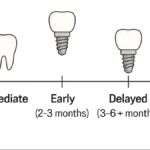Picture this: your business data is as valuable as a treasure chest brimming with gold, but where do you stash it all safely? Enter the enchanting world of “types of storage units!” Each unit boasts unique features like mystical creatures offering their powers some crave the lightning speed of SSDs, while others value the durability of HDDs.
Whichever you choose, understanding these units is a journey worth taking. Ready to dive into a world where data effortlessly meets safety, speed, and capacity? Stick around as we explore each delightful option!
Why Choosing the Right Storage Matters
Before we dive into the different types, let’s talk about why this decision is so important. Your data is one of the most valuable assets your business has. It’s what helps you make informed decisions, improve customer service, and stay ahead of the competition.
Picking the wrong storage unit could mean slower access to your data, higher costs, or even security risks. So, let’s get into the basics of what storage options are out there!
External Hard Drives
Let’s start with one of the simplest options: external hard drives. These are physical devices you plug into your computer to store data. They’re portable, easy to use, and inexpensive.
When to Use External Hard Drives
External hard drives are great for small businesses or individuals who need to store smaller amounts of data. They are ideal for backing up files or transferring data between computers.
But, they do come with some risks. If the hard drive gets damaged or lost, your data is gone with it. Plus, it may not be the best solution if your team needs to access the data from different locations.
Cloud Storage
Ah, the cloud! You’ve heard this term thrown around a lot. Cloud storage allows you to store data on remote servers managed by companies like Google Drive, Dropbox, or Microsoft OneDrive. The best part? You can access your data from anywhere, as long as you have an internet connection.
When to Use Cloud Storage
Cloud storage is perfect for businesses that need flexible and scalable solutions. As your business grows, you can increase your storage space.
Plus, cloud services often come with built-in security features. But, it’s important to ensure your internet connection is reliable, as slow speeds could impact your access to important files.
Network-Attached Storage (NAS)
A NAS system is a specialized device connected to your office network that stores and serves data. Unlike an external hard drive, NAS devices can be accessed by many users on the same network, making it great for teams that collaborate on files.
When to Use NAS
NAS is an excellent data storage solution for small to medium-sized businesses requiring shared storage. It allows your team to access and edit files and often includes security features to safeguard your data.
It’s also cost-effective, operating in the background with minimal maintenance once set up. Remember that NAS is accessible only from your office unless configured for remote access. It’s a vital component of effective data backup strategies.
Storage Area Network (SAN)
Now, if your business is dealing with huge amounts of data or complex databases, a SAN might be what you need. SAN is a network of storage devices that can be accessed by many servers. It’s super fast and is used by large businesses with critical data needs.
Choosing the Right Data Storage Solution
At this stage, you might be asking yourself, “What distinguishes SAN from NAS?” Consider SAN as a premium choice, whereas NAS is geared towards regular use. In a SAN vs NAS comparison, SAN provides higher speeds and is ideal for businesses with intensive data needs, though it comes at a higher cost and involves a more intricate setup.
Hybrid Storage
Hybrid storage combines both cloud storage and on-premises storage (like NAS or SAN). This setup allows you to store some data and other data in the cloud. It offers the best of both worlds by providing fast local access to used files, while still having the flexibility and scalability of the cloud for larger data sets.
When to Use Hybrid Storage
Hybrid storage is ideal if your business has mixed data needs. For example, you might want to keep sensitive information on a local server but store less critical data in the cloud. This way, you get the speed of local access and the flexibility of cloud storage.
Direct-Attached Storage (DAS)
DAS is like an external hard drive, but it’s connected to a server instead of a personal computer. This type of storage can only be accessed by the server it’s connected to, making it ideal for businesses that need fast and direct access to data without the need for a network.
When to Use DAS
DAS is great for businesses that need a simple, cost-effective way to store data. But, because it can only be accessed by one server, it’s not ideal for teams that need to share files across different locations.
Tape Storage
This might sound old-fashioned, but tape storage is still a reliable option for businesses that need to store a large amount of data over a long period. Tapes are small, can hold massive amounts of data, and are inexpensive.
The downside? Retrieving data from tapes can be slow, and they’re not as easy to use as other storage options.
When to Use Tape Storage
Tape storage is a solid choice for businesses that need to archive data for the long term. If you have files that you won’t need to access but still need to keep (like legal documents or old customer records), tape storage can be a cost-effective solution.
What About Data Security?
No matter which type of storage unit you choose, data security should always be top of mind. Make sure your storage solution offers features like encryption, backup options, and user access controls. The last thing you want is for your data to fall into the wrong hands.
Understanding the Types of Storage Units for Smarter Business Choices
In conclusion, selecting the optimal types of storage units is pivotal in safeguarding your business’s invaluable data. Whether you focus on speed, scalability, or security, there’s a storage solution tailored to meet your specific needs.
Each type has its strengths, from cloud and hybrid options to classic tape storage, making businesses more efficient and secure in handling data. Investing in the right storage can propel your business forward, ensuring your data is protected and accessible. Choose and prosper.
Want to learn more? Explore our other articles before you leave!







